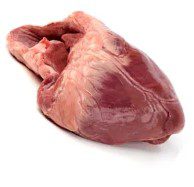

Feeding kangaroo heart to dogs is safe and healthy, as long as it is given in small portions. Overfeeding can lead to health problems such as heart issues and vitamin A poisoning.
Kangaroo heart is a low-fat, high-protein source of omega-3 and vitamins B2, B6, and B12. It promotes cell renewal, protects against heart disease, and contains CoQ10 to improve energy levels and cardiovascular health.
Kangaroo heart is high in cholesterol and can cause vitamin A overdose if consumed excessively. It may also contain parasites, bacteria, and diseases, so it’s important to source from reliable suppliers.
When giving kangaroo heart to dogs, choose single-ingredient treats from reputable brands. Moderation is key, and it’s important to avoid overfeeding to prevent health issues.
Kangaroo heart is a nutritious food that can be given in small portions to dogs. It is also known as a vital organ meat. It originated in Australia and has become increasingly popular among pet owners as a premium source of protein. Apart from the high protein content, Kangaroo heart is packed with omega-3 and vitamins B2, B6, and B12. These nutrients boost energy levels, protect against heart disease and promote cell renewal. While it may be an affordable and easy to access treat, kangaroo heart should be served in moderation as overfeeding can lead to heart issues and vitamin A poisoning. It's advisable to source kangaroo heart treats from reliable suppliers to avoid exposing your dog to any parasites or bacterial infections.
Have you ever given kangaroo heart to your pet dog? Did they enjoy it? Considering its benefits and risks, what other protein sources do you prefer to give your pet dog? Remember, when serving kangaroo heart to your pet, ensure you stick to moderation and avoid overfeeding.